Gaby Hoffmann: ‘Do we really need to talk about vaginas? Let’s talk about AK47s and pistols’
The former child star plays a tragedy stricken mother in Netflix’s ‘Eric’. Speaking to Annabel Nugent, she opens up about her extraordinary childhood, her severe aversion to violence on screen – and why ‘Transparent’ would not have been made today

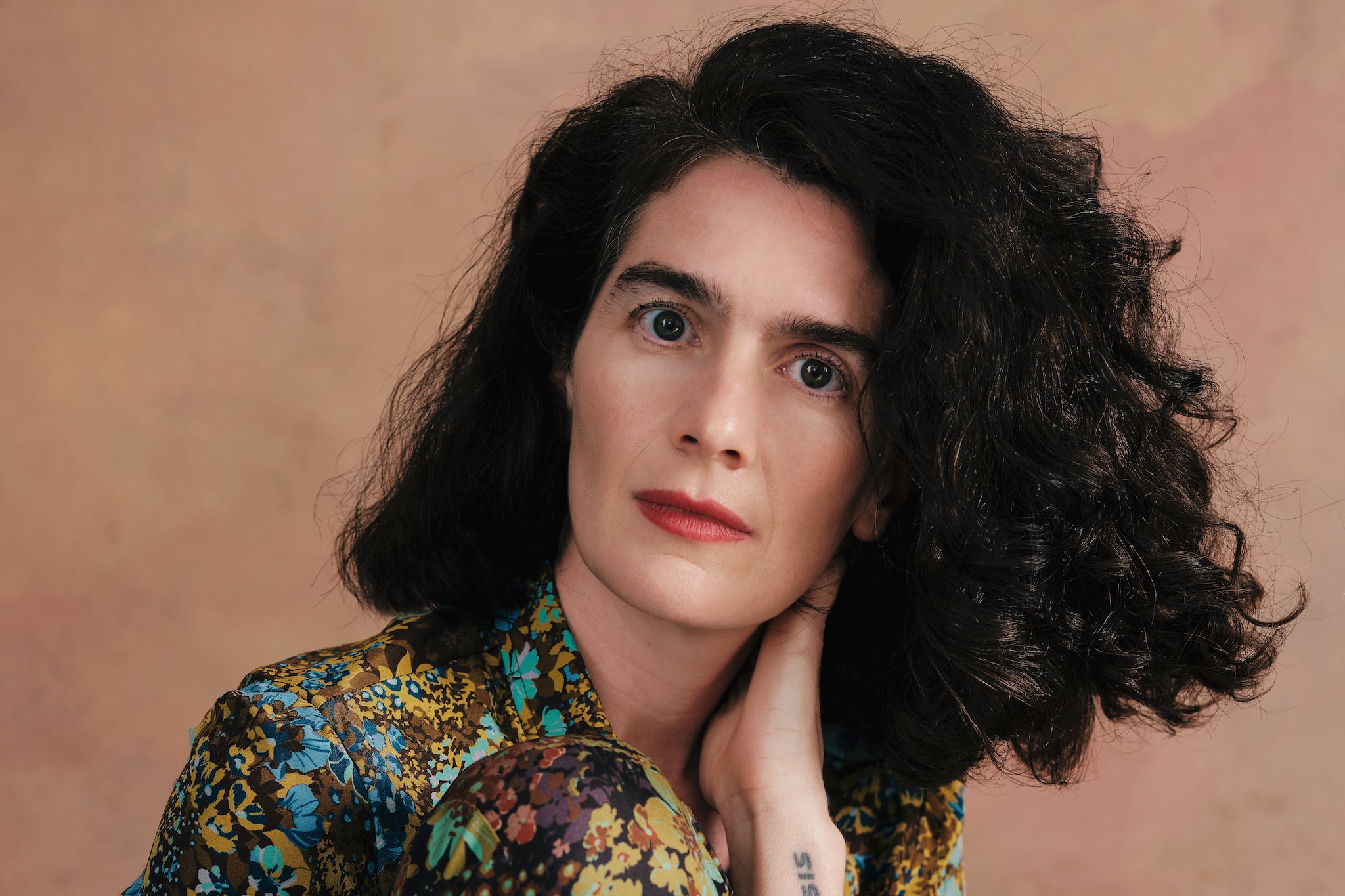
How you know Gaby Hoffmann will depend largely on how frequently you get ID’d buying a bottle of wine at the shops. If the answer’s never, chances are you’ll recognise her as the child star of Eighties and Nineties family fare like Field of Dreams, Sleepless in Seattle, and Uncle Buck. (Now 42, she still has the same chocolate pudding pools for eyes and a gap between her front teeth.) Those of a younger generation, though, are more likely to know her from zeitgeisty shows like Lena Dunham’s Girls or Transparent.
It’s a testament to Hoffmann that these credentials, albeit impressive, are the least interesting thing about her. Her life is full of anecdotes that relegate playing Kevin Costner’s daughter to footnote status. There was the time Carrie Fisher gave her a charm bracelet, the day Andy Warhol arrived at her front door with a toy dog under his arm, or the fateful night she and Christina Ricci, teenagers at the time, snuck into a downtown strip club to hang out with Courtney Love. “I had fun,” she grins now, all teeth. “It was a lot of fun.”
Even Hoffmann’s birth was noteworthy, ferried from hospital during a snowstorm to the storied Chelsea Hotel, where she lived for 12 years with her mother, the actor Viva, and stepsister. Think Eloise at the Plaza, if Eloise was the daughter of a Warhol muse and a soap star, and the Plaza was a dingy bohemian den for artists with a gay porn shop next door.
Today, we are speaking at a very different sort of hotel to the Chelsea: more plush, more sanitary – more boring. There is, though, coffee on tap. “You know when you’re so tired you feel stoned?” Hoffmann asks, cradling a cup in her hands. That sounds nice, I offer. “Only if you’re not working!” Chatting with Hoffmann, whose bare feet are curled up beneath her on the sofa, it’s easy to forget she is.
But Hoffmann is in London to promote Eric, her new Netflix series with Benedict Cumberbatch, in which they play parents to a nine-year-old boy who goes missing, lost to the sprawling underworld of 1980s Manhattan. As Cumberbatch’s Vincent, a puppeteer and the creator of a Sesame Street-style TV show, loses his grip on reality, Hoffmann’s Cassie is left holding on for dear life.
Being the most mentally stable person on screen is a novelty for Hoffmann, whose repertoire of characters tend to skew frenzied and maniacal. At the very least, they are what you’d call freewheeling. “Those characters I’ve played in the past are more of a departure from my true nature actually,” she says in what will come as a surprise to many. “This was rich in a different way. I got to dive deep into my humanity in a way that felt connected to the most important things in my life.” By that, she means the two young children she shares with her partner, the writer, teacher, and filmmaker Chris Dapkins.
Hoffmann recognises the city evoked in Eric, teeming as it is with homophobia, racism, and homelessness. So familiar was the environment, she burst into tears upon seeing the set for the first time – overcome by “the gestalt of it” all. That said, Hoffmann always felt safe as a child, even as she stepped over vials of crack in the stairwell, or befriended strangers in the street on her way to school. “I had freedom, but I always had dozens and dozens of sets of eyes on me every day,” she says. “It was like a village.” The city is different now, Hoffmann laments. For the worse.
“I never felt scared in New York when I was six years old and walking around by myself,” she says, “but I’ve actually felt frightened in the past couple of years, because there are so many people that feel so desperate – and when you’re desperate, you’re capable of a lot. It’s startling.”
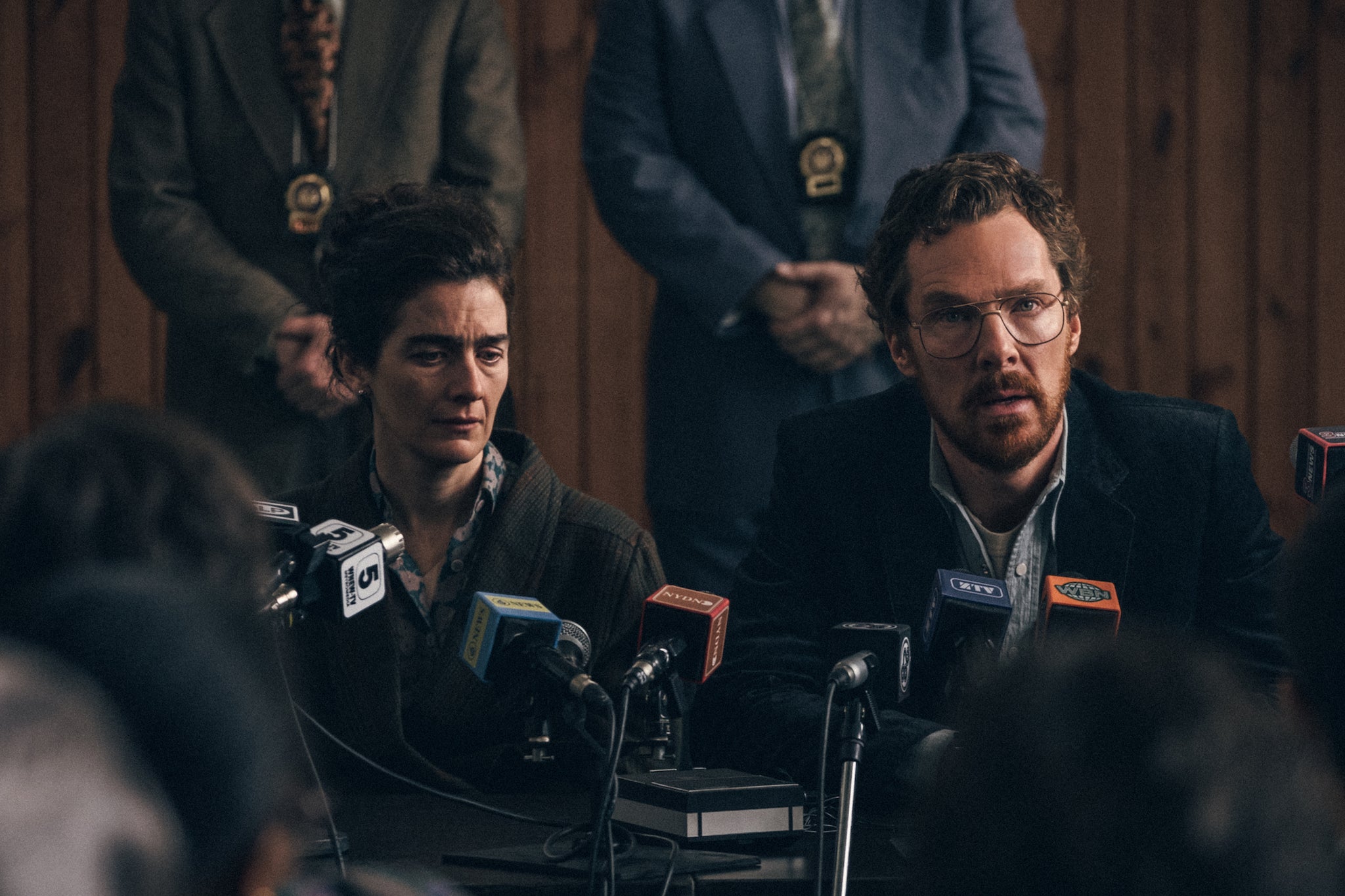
It was a family friend who first suggested Hoffmann try out for a few commercials. Even bohemian artists like Viva had to pay rent. Luckily, success was instant: even at four, Hoffmann was a natural presence on screen. She also possessed the sort of unmediated moxie the press adored. At age 10, she mouthed off about her “horrible” experiences working with male directors – naming and shaming as she went.
“What I said was true,” she recalls now, with a twinge of admiration for her former self. “I had some difficult experiences with my male directors as a kid. I hold no grudges.” Today, she leaves out specifics, but 10-year-old Hoffmann was more forthcoming, railing against “awful” Field of Dreams director Phil Alden Robinson, and John Hughes who was “just as bad”. Hoffmann does, however, confess to playing it up for the press. “I knew what it was supposed to sound like to be smart and punchy,” she smirks a little at her former self. “It’s not that I wasn’t being truthful, but I think I was leaning into something sort of precocious.”
By the time Hoffmann turned 17, Hollywood was opening up like an oyster on a silver platter. Then she quit. “Even when I was seven, I knew I’d leave acting to go to college,” she says. Going to university fit in with the suburban fantasy she’d been harbouring since her youth: a college degree, a white picket fence, a normal job, and so on.
Now I look back, and think… well, I could have made a little more money
(Prior to that, the fantasy also included a brief stint at Buckley, a preppy private high school in LA, where Hoffmann had begged her mum to send her. Paris Hilton and Nicole Richie were among her classmates. “I left as quickly as I could,” she laughs now. “It was fascinating in some ways, like the Kardashians were in my class, you know? But I grew up in downtown Manhattan in the Eighties, and it could not get more different.”)
When she decided to quit the industry, was she concerned about money at all? “The finances didn’t occur to me. Although now I look back, and think… well, I could have made a little more money,” she laughs, speaking out of the corner of pursed lips like a bad ventriloquist.
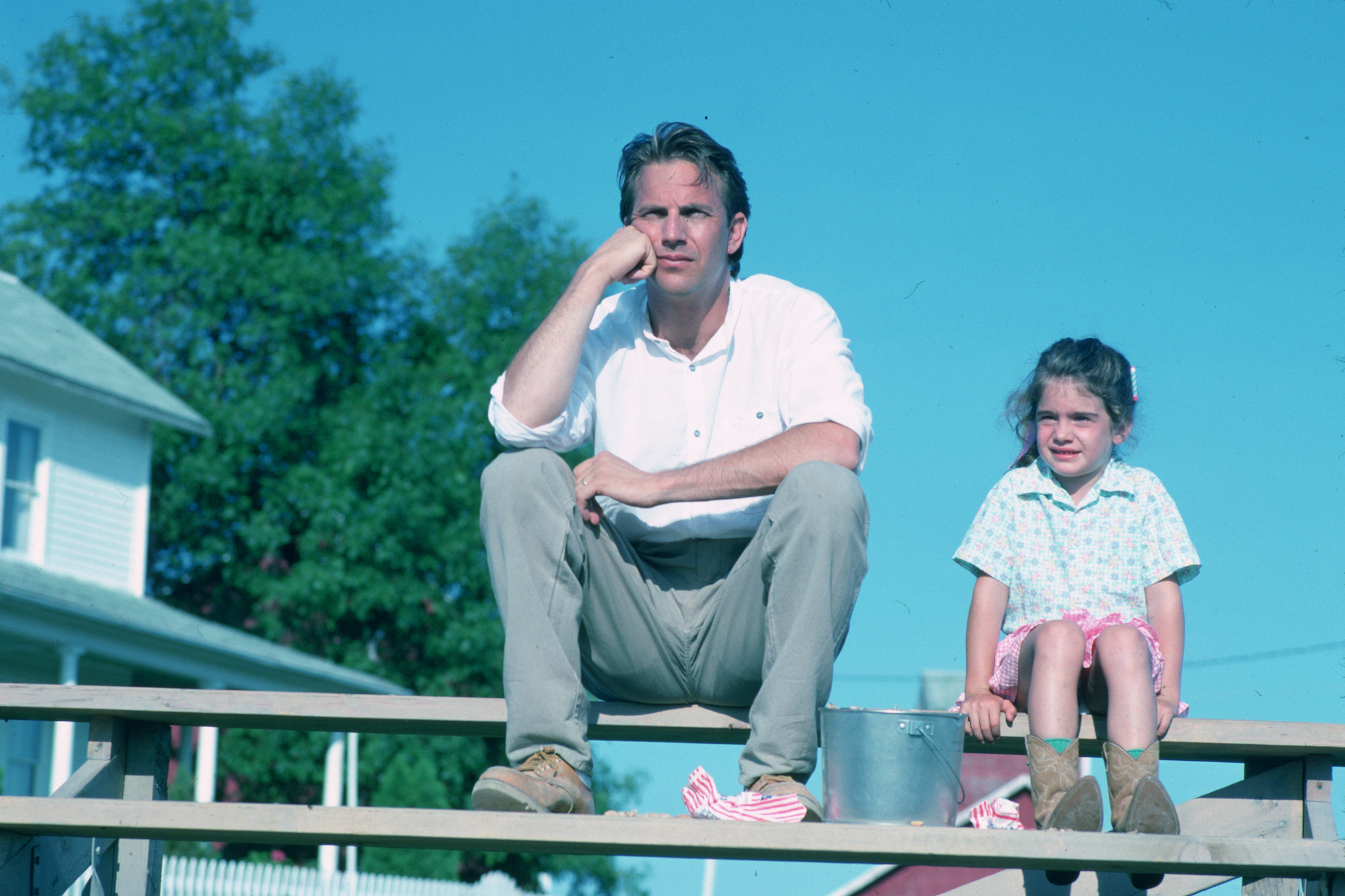
The intervening years were tough. “I didn’t find what I was looking for,” she says. “What I found was a decade of lostness, confusion, depression and anxiety, and paralysis.” Mostly, though, the break allowed her to return to acting on her own terms. “I knew it wasn’t a knee-jerk reaction or something I was doing because I had done it and didn’t know what else to do, or because I was afraid of making money,” she says. “I gave it all up. I let myself go totally broke before I took a step toward acting. And it turns out there was a lot there for me.”
Hollywood welcomed Hoffmann home with open arms. One of her first films back, an indie film with Michael Cera called Crystal Fairy & the Magical Cactus, was reviewed mostly favourably by critics and fans. It is the rare druggie road trip movie that doesn’t suck. Hoffmann spends much of the film high, dancing, and naked. It was the third thing that caused the most ruckus.
“I’ve always been very comfortable being naked,” Hoffmann says. “So long as a woman is not being made to feel uncomfortable or isn’t being exploited, it shouldn’t be a big deal.” But a big deal, it turned out to be. So shocked by Hoffmann’s pubic hair – the abundance of it or even its mere existence – people assumed she was wearing a merkin. She was not. The scrutiny over her body and her decision to bare it was reignited a couple of years later when she appeared in the third season of Girls as Adam Driver’s terrifically unhinged, and often naked, sister Caroline.
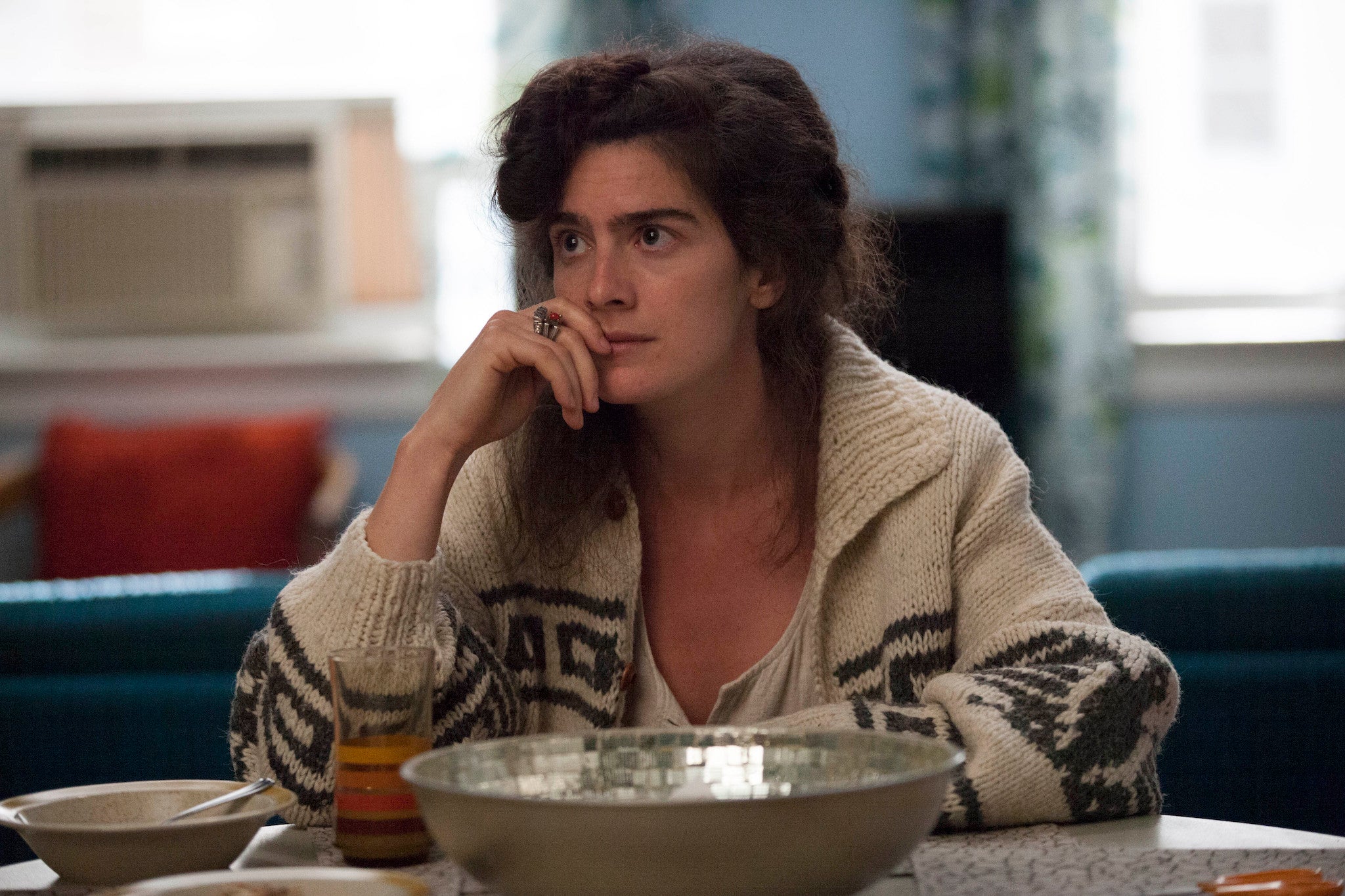
“I was annoyed and bored by that conversation, especially being called brave,” she scoffs. “I’m always shocked that nudity is such a big topic when it seems like in every other film someone gets their head blown off. Do we really need to talk about tits and vaginas? Let’s talk about AK47s, pistols, and the kind of absolutely revolting violence that is not just normal, but expected.”
These days, she continues, in America at least, people are still prudish about boobs but not blood. “I mean, I can barely watch somebody get punched, but a breast? That’s beautiful,” she smiles.
When it comes to this specific instance [with ‘Transparent’], it makes sense to me that the character should be played by a trans woman
It was her turn in Joey Soloway’s Transparent that earned Hoffmann her Emmy nominations. The series, which followed a family coping with the transition of their father-turned-mother played by Jeffrey Tambor, is still hailed as a watershed moment for trans representation. Still, it’s hard to believe the show would be made today with a cis man playing a trans woman. “There’s no way,” Hoffmann says matter-of-factly.
“When it comes to this specific instance, it makes sense to me that the character should be played by a trans woman,” she says. “But that rule seems to be applied to everything and everybody… I don’t really see how it would function if only somebody who represents exactly what the person is is able to play that person. It starts to get confusing.” To be clear, though, she does believe only trans actors should play trans parts. “That part makes perfect sense to me.”
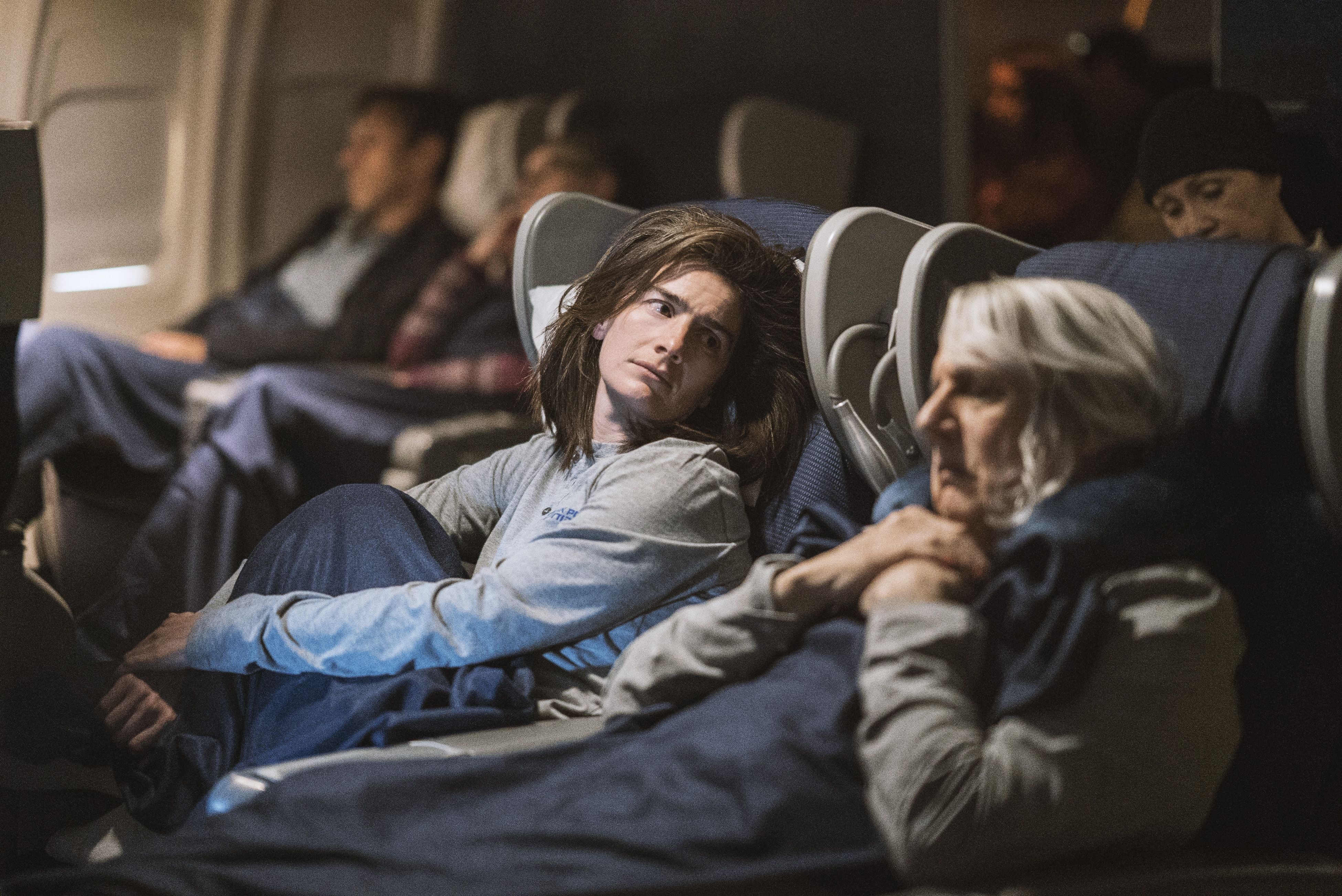
There is one other reason Tambor won’t be asked to reprise his role as Maura anytime soon. He was fired from the series in 2018 over allegations of sexual harassment; Tambor apologised but denied any wrongdoing. “We were about to start shooting the fifth season and then Jeffrey was accused of, you know, bad behaviour,” says Hoffman, taking a deep breath. “It was painful, not because the show was ending abruptly – although that was painful, too – but because we were all going through a family crisis. It was confusing. It was devastating. It was scary. It was heartbreaking. It was many, many things.” She still has a great deal of love for Tambor, despite the alleged “bad behaviour”.
Speaking to Hoffmann, you get the overwhelming sense she may just disappear again, that Eric and every appearance after that may be her swan song. “If acting is part of my future then that’s wonderful – but I’m certainly not attached to that or sure about it,” she says, pausing for a moment to ponder it further. “I still sort of wonder what I’m going to be when I grow up.”
‘Eric’ is available to watch now on Netflix
Join our commenting forum
Join thought-provoking conversations, follow other Independent readers and see their replies
Comments
Bookmark popover
Removed from bookmarks